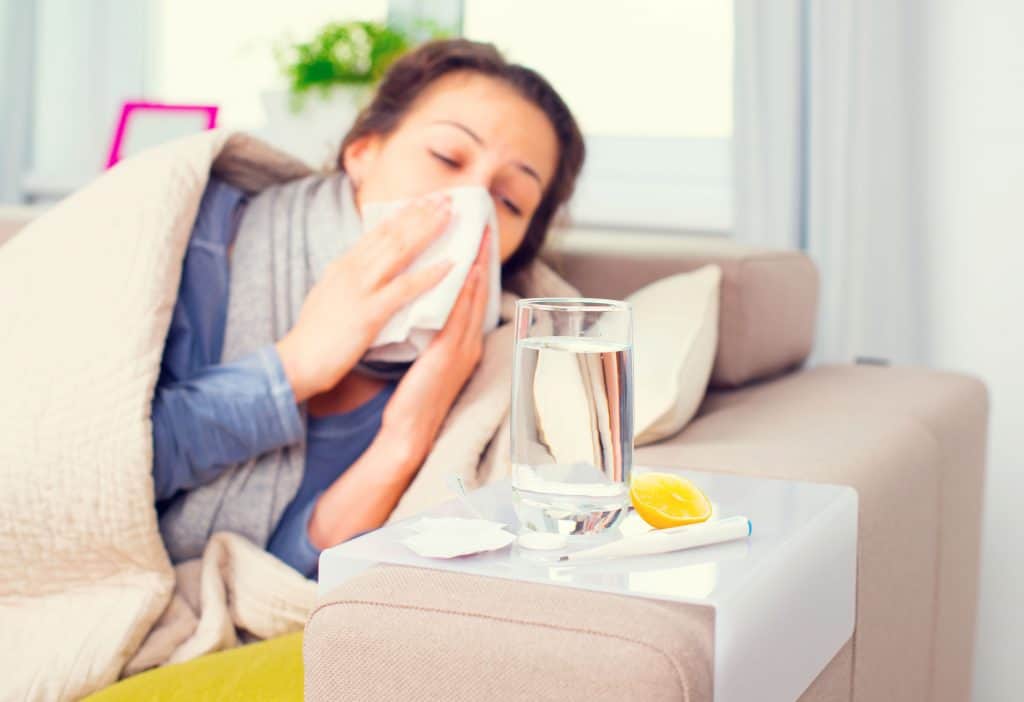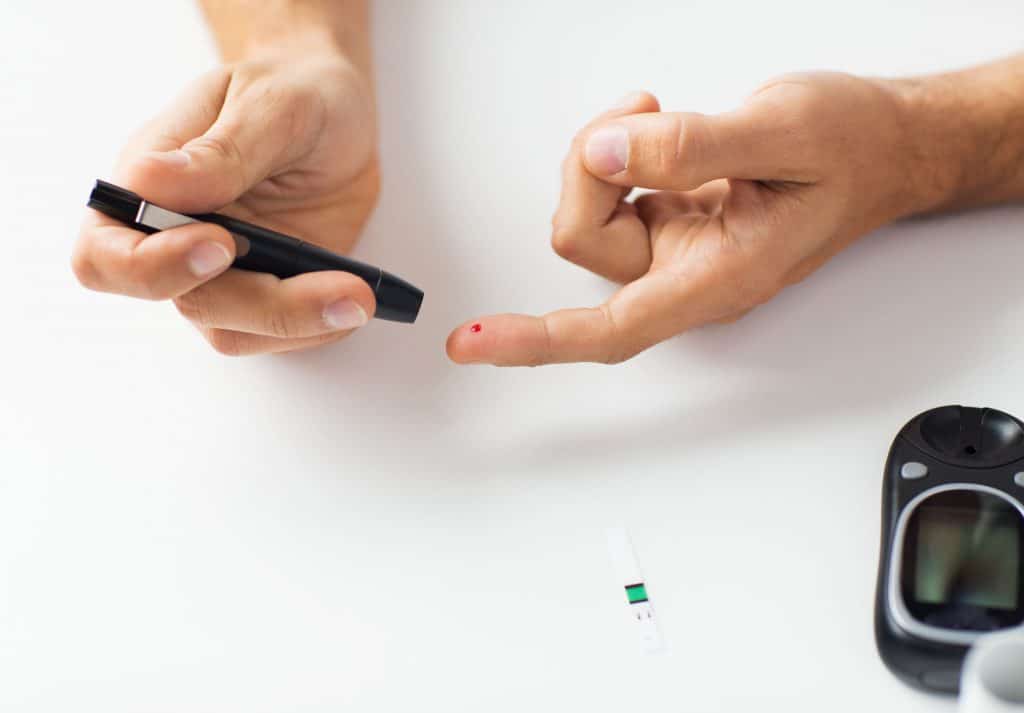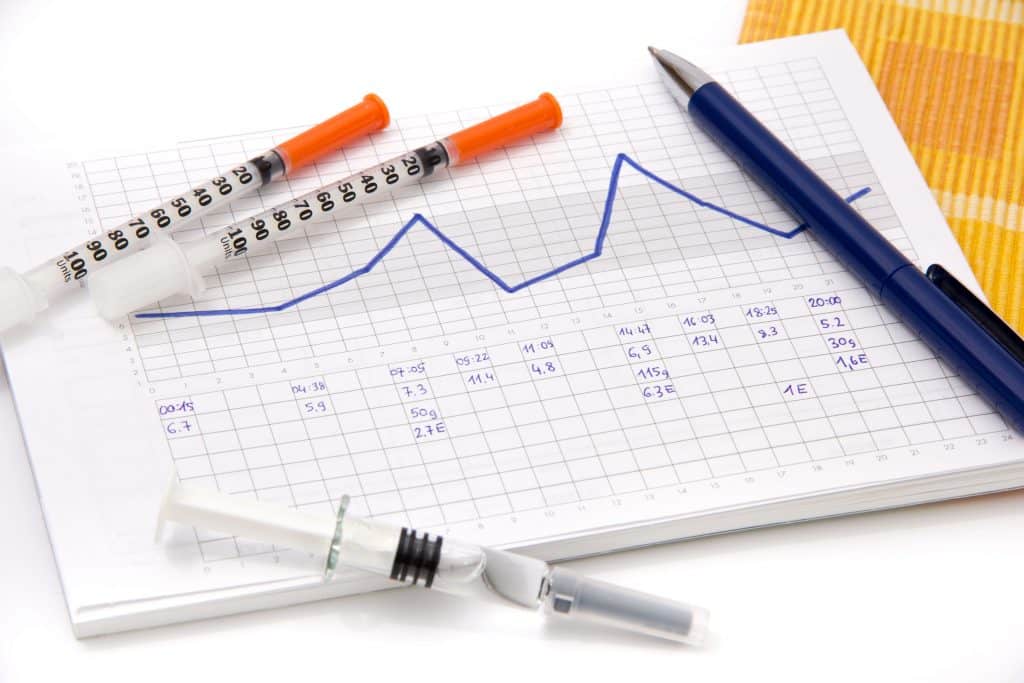8 Steps for Managing Your Diabetes When You Are Sick – A Guide
Posted by Prescription Hope - See Editorial Guidelines (Last Updated On: Fri Apr 21 2023)
As someone with diabetes, I understand just how difficult it can be to manage your diabetes when you are sick. Diabetes can cause your immune system to be compromised, putting you at a higher risk for having an illness. But what makes managing your diabetes when you are sick so difficult? Here’s a quick summary for you before we get into more detail. How to Manage Your Diabetes When you are Sick? When a person with diabetes gets sick with a cold, flu, or something similar, they may experience blood sugar levels that are out of control. Managing your diabetes when you are sick requires the individual to monitor their blood sugar levels, hydrate well, eat well, and to get enough rest. Here is why getting sick and having diabetes can be a dangerous combination. Follow these tips for ensuring a healthy recovery from being sick when you have diabetes.
Why Getting Sick and Having Diabetes is Dangerous
 Getting sick when you have diabetes, regardless of the type of diabetes, can be dangerous. As many of you know, diabetes is a relentless disease that takes no days off. When you get sick, your body releases hormones that can cause blood sugar levels to spike, making life difficult for those with diabetes.
First and foremost, being sick or having a cold puts your body under stress. When your body is under stress, it begins to release hormones that may include cortisol, adrenaline, or other stress hormones.
These hormones trigger your liver to release glucose into the bloodstream. The result is an elevated blood sugar. This makes it extremely difficult for a person with diabetes to predict and control blood sugar levels when they are sick.
In the worst case, these elevated blood sugars during sickness can result in diabetic ketoacidosis (DKA), which can lead to coma and even death. DKA is described as the body breaking down fats too quickly, resulting in the blood becoming acidic. DKA is a life-threatening condition that requires hospitalization.
On top of the increase of hormones being produced, your body just isn’t functioning as normal. When you are sick, your sleep patterns become disrupted, you can become dehydrated, and you may have different eating habits.
All these things can affect your blood sugar control. We will get into how specifically these things affect your blood sugar as we discuss tips for managing your diabetes when you are sick. Follow these diabetes sick day guidelines to ensure you remain in control.
Getting sick when you have diabetes, regardless of the type of diabetes, can be dangerous. As many of you know, diabetes is a relentless disease that takes no days off. When you get sick, your body releases hormones that can cause blood sugar levels to spike, making life difficult for those with diabetes.
First and foremost, being sick or having a cold puts your body under stress. When your body is under stress, it begins to release hormones that may include cortisol, adrenaline, or other stress hormones.
These hormones trigger your liver to release glucose into the bloodstream. The result is an elevated blood sugar. This makes it extremely difficult for a person with diabetes to predict and control blood sugar levels when they are sick.
In the worst case, these elevated blood sugars during sickness can result in diabetic ketoacidosis (DKA), which can lead to coma and even death. DKA is described as the body breaking down fats too quickly, resulting in the blood becoming acidic. DKA is a life-threatening condition that requires hospitalization.
On top of the increase of hormones being produced, your body just isn’t functioning as normal. When you are sick, your sleep patterns become disrupted, you can become dehydrated, and you may have different eating habits.
All these things can affect your blood sugar control. We will get into how specifically these things affect your blood sugar as we discuss tips for managing your diabetes when you are sick. Follow these diabetes sick day guidelines to ensure you remain in control.
1. Stay Hydrated
If you are ill and are experiencing vomiting or diarrhea, then you can become severely dehydrated quickly. When you become dehydrated, your body begins to low run on fluids. This results in the sugar in your blood becoming more concentrated. Therefore, high blood sugar becomes inevitable for a person with diabetes. When a person with diabetes experiences high blood sugar, they may begin to urinate more. Frequent urination can lead to even more severe dehydration. Hydrating properly should be a high priority for those that have diabetes and are sick. Even for a person without diabetes, hydration should be practiced. Studies suggest that staying hydrated can help the immune system fight off infections and illnesses. An active person should strive to drink 1 ounce of water per pound of bodyweight. A person that may not be as active should strive to drink 1 ounce of water for every 2 pounds of bodyweight. Hydrating with water is the best option, and caffeinated beverages should be avoided if you are dehydrated.2. Keep a Consistent and Healthy Diet
Keeping a consistent and healthy diet should already be a high priority for a person with diabetes. However, this becomes a much higher priority with the onset of an illness. You want to have food handy that is easy to eat, as when you get sick, it can be easy to lose your appetite. Low blood sugar is a concern for those that are insulin-dependent. Therefore, it is crucial for a person with diabetes to have foods readily available that prevent low blood sugars. This may include foods such as yogurt, crackers, soup, and fruits. Meal replacement shakes are a viable option for those that don’t have the greatest appetite also. The goal with your meals should be to make sure you are keeping your blood sugars stable based on your carbohydrate intake while also getting adequate protein.3. Monitor Blood Sugar and Ketones
 Monitoring your blood sugar levels is an absolute must for managing your diabetes when you are sick. As mentioned above, your blood sugars can rise due to hormones in the body. You may not notice this without checking your blood sugar levels.
Monitor your blood sugar levels often will give you an idea of how much insulin you need and how severe your sickness is. The most critical times for you to check your blood sugar are before meals and before heading to bed.
Along with this step is checking your ketones when necessary. You can check your ketones with a urine test using a ketone test strip. Medical professionals recommend checking for ketones when your blood sugar is over 240 mg/dL.
Most ketone test strip containers will have a chart or table for you to look at so you can determine if you have high ketone levels. Higher ketone levels can mean that your diabetes management is out of control and maybe a sign of diabetic ketoacidosis. You should call your doctor if your blood sugar is consistently over 240 mg/dL or if you have high levels of ketones in your urine.
Monitoring your blood sugar levels is an absolute must for managing your diabetes when you are sick. As mentioned above, your blood sugars can rise due to hormones in the body. You may not notice this without checking your blood sugar levels.
Monitor your blood sugar levels often will give you an idea of how much insulin you need and how severe your sickness is. The most critical times for you to check your blood sugar are before meals and before heading to bed.
Along with this step is checking your ketones when necessary. You can check your ketones with a urine test using a ketone test strip. Medical professionals recommend checking for ketones when your blood sugar is over 240 mg/dL.
Most ketone test strip containers will have a chart or table for you to look at so you can determine if you have high ketone levels. Higher ketone levels can mean that your diabetes management is out of control and maybe a sign of diabetic ketoacidosis. You should call your doctor if your blood sugar is consistently over 240 mg/dL or if you have high levels of ketones in your urine.
4. Pay Attention to Symptoms
Those who are sick and have diabetes should pay close attention to the symptoms of a diabetic emergency. These symptoms may include:- Blood sugars consistently over 240 mg/dL
- High ketone levels
- Frequent urination
- Dehydration or extreme thirst
- Rapid weight loss
- Confusion
- Loss of consciousness
- Vomiting for more than six hours
5. Take Medications Wisely
To help ease symptoms and help with the recovery of your sickness, you should take medication. However, certain medications may impact your diabetes management. You should not take medicines that can affect your blood sugar or interact with your other diabetes medications. Consult your local pharmacist for advice on what over-the-counter medicines are appropriate for you to take. If you have a cough, then look for a sugar-free cough syrup. Keep in mind that decongestants such as Afrin and Sudafed may impact blood sugar levels and blood pressure.6. Rest
Rest for anyone that is sick is crucial. Sleep can help your immunes system fight off infections and allow you to feel better sooner. So, when you are sick, make sure that you are getting plenty of sleep. The less rest you get, the more likely your illness will stick around for longer, which is not good for your diabetes management.7. Keep a Record
 It is recommended that those that are sick and have diabetes should keep a record of what they eat, when they eat, how much insulin was given, and their blood sugar at the time.
Keeping a record allows you to track any trends in your diabetes management. It will be a good indicator to determine if you are getting better or worse. It may also be a good idea to keep a record of your symptoms and when you are experiencing them. Some suggest tracking your weight each day when you are sick also. Rapid weight loss may be a sign of poor diabetes management.
Keeping a record may seem mundane and pointless, but it is an essential step for managing your diabetes when you are sick.
It is recommended that those that are sick and have diabetes should keep a record of what they eat, when they eat, how much insulin was given, and their blood sugar at the time.
Keeping a record allows you to track any trends in your diabetes management. It will be a good indicator to determine if you are getting better or worse. It may also be a good idea to keep a record of your symptoms and when you are experiencing them. Some suggest tracking your weight each day when you are sick also. Rapid weight loss may be a sign of poor diabetes management.
Keeping a record may seem mundane and pointless, but it is an essential step for managing your diabetes when you are sick.

